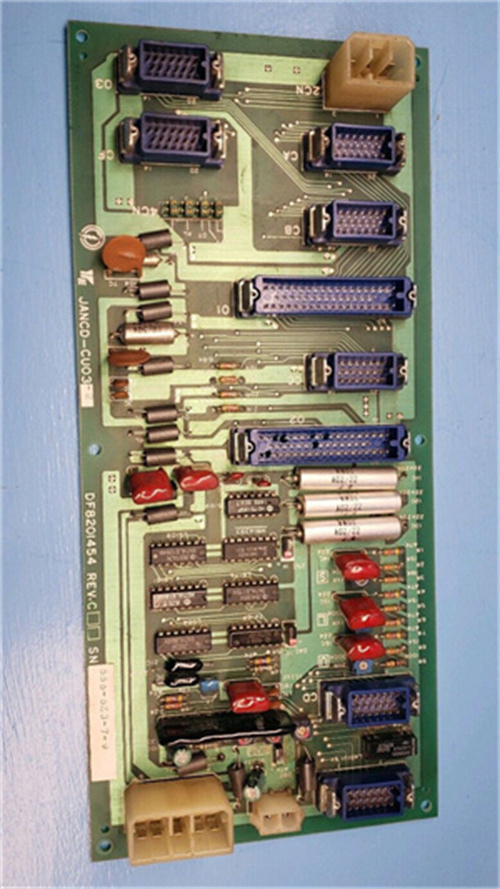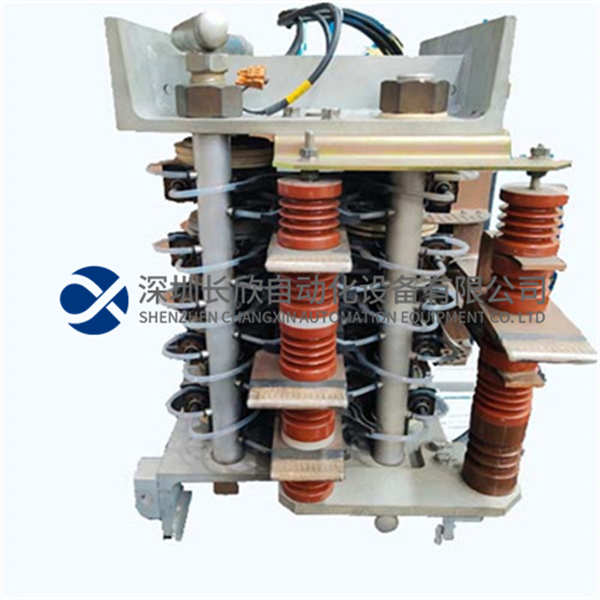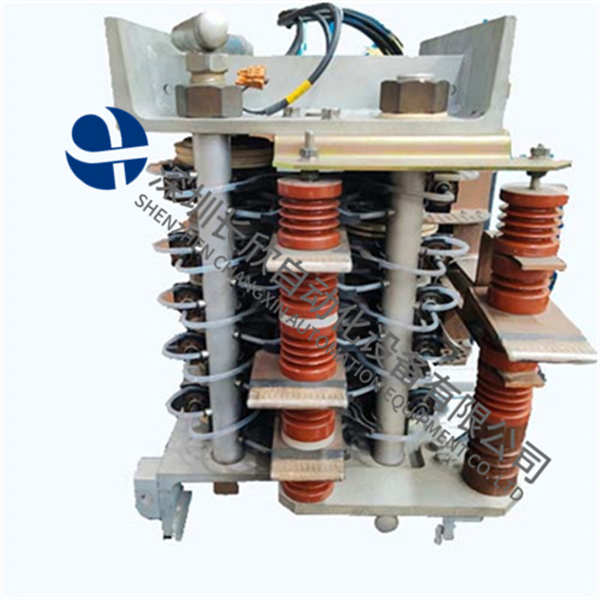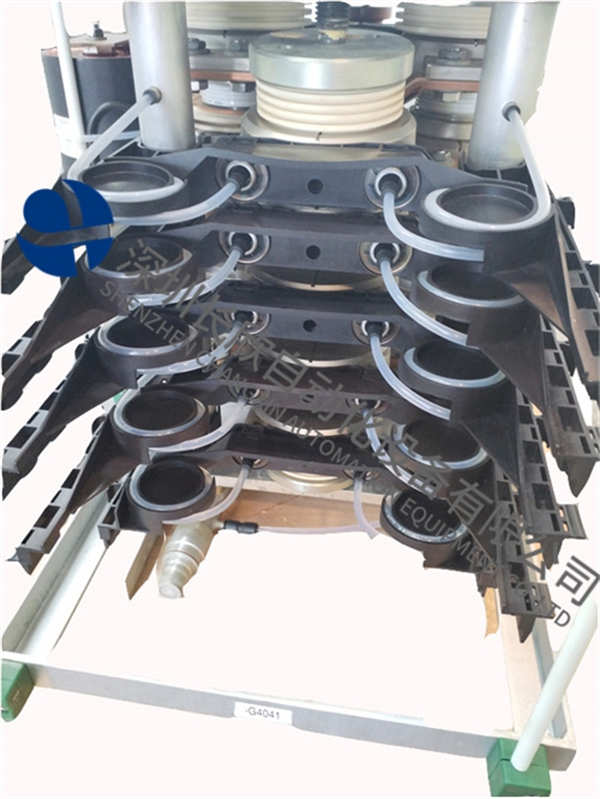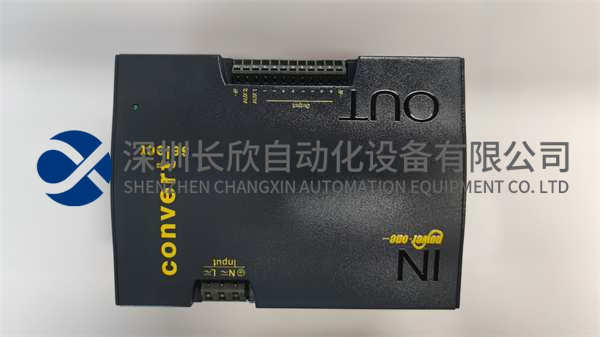描述
YASKAWA JANCD-CU05是安川电机(YASKAWA)为工业自动化系统设计的高性能控制模块,属于PLC/DCS扩展系列,广泛应用于能源、电力、机器人及智能制造等领域。以下是其综合技术特性与应用场景分析:
1.核心功能
高速逻辑控制:
支持高速输入输出(DI/DO)处理,响应时间<1ms,适用于高精度运动控制、实时数据采集及快速故障响应场景。
通信与协议兼容性:
集成MECHATROLINK-III、EtherCAT等高速工业协议,支持与主流机器人控制系统(如安川MOTOMAN系列)及PLC(如西门子S7)无缝对接,实现数据高效传输与协同控制。
扩展灵活性:
提供8路模拟量输入(AI)与8路模拟量输出(AO)接口,支持与Σ-Ⅴ系列伺服驱动器级联,构建分布式运动控制系统。
2.技术特点
高性能计算:
内置专用运动控制算法,支持多轴插补、电子齿轮及主从控制,适用于复杂轨迹规划与同步任务。
工业级可靠性:
采用宽温设计(-40℃至70℃),抗电磁干扰能力符合IP20防护标准,平均无故障时间(MTBF)超50,000小时,满足严苛工业环境需求。
振动抑制技术:
集成改进型振动抑制算法,可减少伺服系统运行时的机械振动,提升设备稳定性与加工精度。
3.应用场景
机器人系统:
驱动工业机器人多轴运动控制单元,实现高速分拣、精密装配及复杂轨迹跟踪(如汽车焊接工作站)。
能源电力:
应用于智能变电站自动化、风力发电机组控制,优化电网同步与功率分配响应速度。
智能制造:
驱动数控机床伺服系统,实现高精度铣削、磨削等工序的实时调控与负载自适应调整。
轨道交通:
支持列车牵引系统的高速输出控制与冗余设计,确保紧急制动的快速响应。
4.技术优势
模块化集成:
支持与Σ-Ⅴ系列伺服电机、驱动器及PLC模块无缝集成,简化系统设计与维护流程。
快速调试:
配备图形化配置工具与自动调谐功能(整定时间<100ms),降低复杂系统调试周期。
维护便捷性:
提供在线故障诊断、日志记录及远程维护接口,减少停机时间与人工成本。
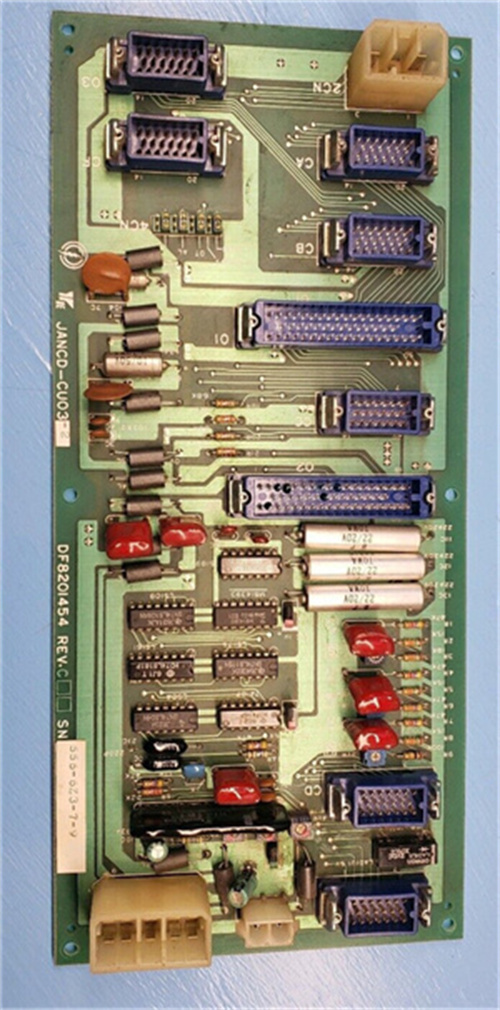
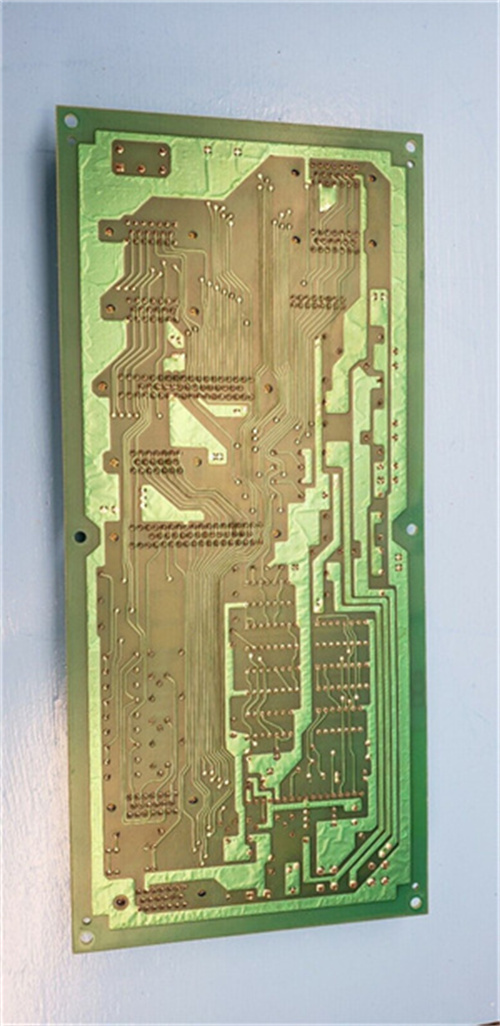
YASKAWA JANCD-CU05 is a high-performance control module designed by Yaskawa Electric(YASKAWA)for industrial automation systems.It belongs to the PLC/DCS extension series and is widely used in energy,electricity,robotics and intelligent manufacturing.The following is an analysis of its comprehensive technical characteristics and application scenarios:
1.Core functions
High-speed logic control:
Supports high-speed input and output(DI/DO)processing,with a response time of<1ms,suitable for high-precision motion control,real-time data acquisition and fast fault response scenarios.
Communication and protocol compatibility:
Integrates high-speed industrial protocols such as MECHATROLINK-III and EtherCAT,supports seamless connection with mainstream robot control systems(such as Yaskawa MOTOMAN series)and PLCs(such as Siemens S7),and realizes efficient data transmission and collaborative control.
Expansion flexibility:
Provides 8 analog input(AI)and 8 analog output(AO)interfaces,supports cascading withΣ-V series servo drives,and builds distributed motion control systems.
2.Technical Features
High-performance computing:
Built-in dedicated motion control algorithm,supports multi-axis interpolation,electronic gears and master-slave control,suitable for complex trajectory planning and synchronization tasks.
Industrial-grade reliability:
Adopts wide temperature design(-40℃to 70℃),anti-electromagnetic interference capability meets IP20 protection standards,and the mean time between failures(MTBF)exceeds 50,000 hours,meeting the needs of harsh industrial environments.
Vibration suppression technology:
Integrated improved vibration suppression algorithm can reduce mechanical vibration during servo system operation,improve equipment stability and processing accuracy.
3.Application scenarios
Robotic system:
Drives industrial robot multi-axis motion control unit to achieve high-speed sorting,precision assembly and complex trajectory tracking(such as automotive welding workstations).
Energy and power:
Applied to intelligent substation automation,wind turbine control,and optimizes grid synchronization and power distribution response speed.
Intelligent manufacturing:
Drives CNC machine tool servo system to achieve real-time control and load adaptive adjustment of high-precision milling,grinding and other processes.
Rail transit:
Supports high-speed output control and redundant design of train traction systems to ensure rapid response to emergency braking.
4.Technical advantages
Modular integration:
Supports seamless integration withΣ-V series servo motors,drives and PLC modules to simplify system design and maintenance processes.
Quick debugging:
Equipped with graphical configuration tools and automatic tuning functions(setting time<100ms),reducing the debugging cycle of complex systems.
Convenient maintenance:
Provides online fault diagnosis,log recording and remote maintenance interface to reduce downtime and labor costs.

